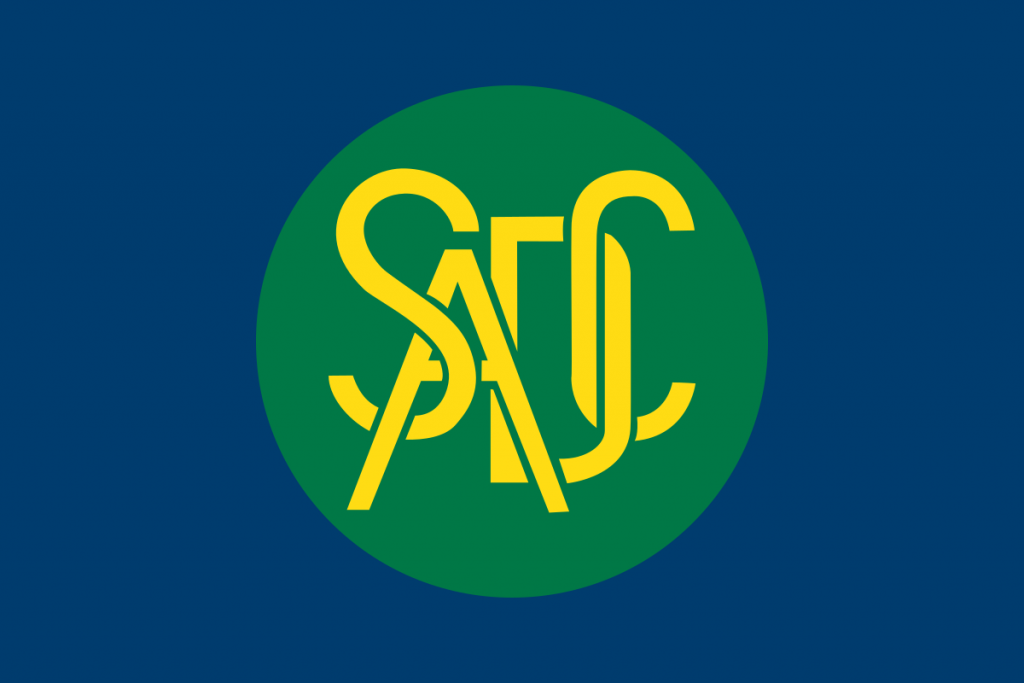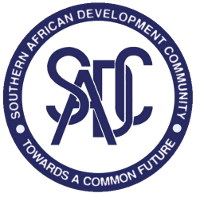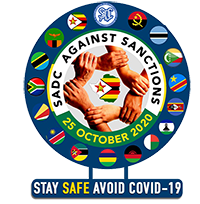THE Southern African Development Community (SADC) has intensified the fight for the removal of illegal economic sanctions on Zimbabwe by launching a multi-pronged international diplomatic offensive.
This was said by the bloc’s Executive Secretary, Dr Stergomena Tax, ahead of October 25, which the regional has set aside annually as the SADC Anti-Sanctions Day.
In Zimbabwe, Ocotober 25 has been declared a public holiday in recognition of the need for the nation to unite in calling for an end to the destructive embargo that has negatively impacted on public healthcare, household food security and national infrastructure, among other things.
While Dr Tax said the region was going all out to press Zimbabwe’s case globally, locally, Ministry of Information, Publicity and Broadcasting Services Permanent Secretary Mr Nick Mangwana said several activities had been lined up – within the bounds of health regulations in line with COVID-19 control protocols – for October 25.
In addition, SADC ambassadors in various Western capitals are undertaking intense lobbying on behalf of Zimbabwe.
Dr Tax said the SADC Secretariat was engaging directly with Washington and other Western capitals to articulate the urgency required to lift the sanctions.
“With this campaign, SADC is engaging the nations that have imposed sanctions, in particular the United States of America and the European Union (EU), to put the lives of the Zimbabwean people first.
“This year, SADC will intensify engagements with the countries that have imposed the sanctions, and urge them to lift the measures.
“SADC firmly believes in the power of dialogue, which remains an integral component of Sadc’s efforts to call for the removal of sanctions.”
Dr Tax said SADC had taken up the issue with multilateral bodies such as the United Nations, adding that the impact of the embargo has transcended Zimbabwe’s borders.
“SADC continues to stand in solidarity with the Zimbabwean people and is committed to continuously call for lifting of the coercive measures imposed on Zimbabwe until the sanctions are lifted.
“The collective position of SADC is that the sanctions have caused severe suffering for the citizens of Zimbabwe, impeding the country’s efforts to resuscitate the economy and improve the livelihoods of her people.
“The severity of the impact of sanctions has been compounded by, among others, the COVID-19 global pandemic, as the continued existence of these coercive measures has significantly affected the country’s response capacity.”
Zimbabwe, she said, is unable to marshal financial support required to combat the pandemic and sustain the livelihoods of its most vulnerable citizens.
Dr Tax said SADC was encouraged by the ongoing formal political dialogue between Harare and the EU.
Harare last year opened a formal political dialogue with Brussels, which led to a measured thawing of relations, culminating in the subsequent suspension of sanctions on three senior Government officials early this year.
“On different occasions, SADC, through the Secretariat in Gaborone, has engaged representatives of the United States of America, the European Union (EU), the United Nations (UN) and other members of the international community to reiterate SADC’s position and impress upon them the urgency of lifting the sanctions.
“It is encouraging that dialogue with these international partners, particularly the EU, has started reaping positive results as we are reaching a common understanding on the need to support Zimbabwe in her socio-economic transformation and political reform efforts.
“While SADC has been engaging with international partners, it is incumbent upon Zimbabwe to continue with her re-engagement efforts as evidenced by the various political dialogues held between Zimbabwe and the EU in 2019, which has resulted in some of the measures being lifted.”
She said the removal of the Infrastructure Development Bank of Zimbabwe and Agricultural Development Bank of Zimbabwe from the sanctions list by the US in May was welcome.
Dr Tax said support for the lobby against sanctions was growing with the AU now playing a leading role in pushing for the removal of the embargo.
“Immediately after a SADC Summit adopted a decision in August 2019, in Dar es Salaam, United Republic of Tanzania, to call for the lifting of sanctions imposed on Zimbabwe, SADC formally communicated the decision to the African Union, who became one of the first organisations to support Sadc’s call for the sanctions to be lifted through a statement issued on October 25, 2019.
“In addition, in February 2020, the AU adopted a resolution on the impact of sanctions and unilateral coercive measures imposed on Zimbabwe and other countries. The Republic of South Africa as the current chairperson of the African Union, also called for the removal of sanctions on Zimbabwe in her address to the United National General Assembly in September 2020, by saying that the economic sanctions against Zimbabwe should be lifted immediately to allow the Zimbabwean government to respond adequately to the COVID-19 pandemic.
“The lifting of the sanctions will enable the country to not only mitigate the health impacts of COVID-19, but also assist in the immense task of rebuilding the economy,” she said.
In support of the SADC position, Dr Tax said, regional leaders as well as leaders of the African Union and African countries have consistently used every available platform to call for the removal of sanctions.
“For example, the AU Bureau of Heads of State and Government and representatives of the African Union regional economic communities (RECs), during a meeting held on April 22, 2020, reaffirmed solidarity with Zimbabwe and called for the lifting of sanctions in order to provide the country the fiscal space to focus her resources and efforts in combating the spread of COVID-19.
“Meanwhile, the Organisation of African, Caribbean and Pacific States (OACPS), has voiced concerns over the continued existence of the sanctions.
“During its Summit held in Nairobi, Kenya, in December 2019, the organisation condemned the use of unilateral and coercive measures on other states, particularly referencing the ‘illegal sanctions against developing countries’ including Zimbabwe.
“In particular, the ACP Summit emphasised that the sanctions were meant to prevent the countries from exercising “their right to determine their own political, economic and social system”.
“SADC celebrates these messages of solidarity from the African Union and from the OACPS, and continues to call for the removal of the sanctions,” she said.
In an interview with The Sunday Mail, Mr Mangwana said Government’s preparations for October 25 had gathered momentum.
He said unlike last year, there would be no anti-sanctions march this year, but a raft of activities will be held countrywide.
“Government has arranged an array of activities to commemorate the 25 October Anti-Sanctions Day. The activities include the following:
“President Mnangagwa will deliver his national anti-sanctions address, giving guidance and direction to the nation on how to forge ahead against the disruptive illegal sanctions; an anti-sanctions virtual gala that will be held in a provincial town away from Harare. This is in line with President Mnangagwa’s policy of devolution and decentralising Government events and programmes away from the capital, Harare,” Mr Mangwana said.





